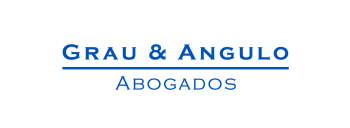On 5 July 2019 the Oviedo Court of Appeal (Section 3) confirmed a trial court decision which had:
- found the defendant guilty of copyright infringement;
- sentenced him to six months' imprisonment; and
- ordered him to pay the plaintiff's court costs and damages of an amount to be determined during the enforcement of the sentence on grounds of civil liability.
On 8 April 2019 Oviedo Trial Court Number 3 held that the defendant had sold computer products and software relating to the diagnosis of vehicle breakdowns, maintenance and repairs – which had been reproduced without authorisation – to individuals and car repair shops. This constituted a crime against copyright under Article 270 of the Criminal Code.
The trial court pointed out that the AUTODATA trademark had been displayed on the fraudulent software, which also constituted trademark infringement in accordance with Article 274 of the Criminal Code. However, the court considered that this crime was absorbed in that of software plagiarism.
The defendant appealed the trial court's decision, arguing defencelessness and that the sentence was insufficiently grounded. He claimed to have been unaware that the software was protected or that AUTODATA was a registered trademark, questioning the quality of the Autodata software as a diagnosis and repair programme by claiming that it was third-party data storage software and disputing expert evidence.
Autodata challenged the defendant's appeal, refuting each of his allegations individually.
The Oviedo Court of Appeal dismissed the defendant's appeal in its entirety, highlighting the multiple contradictions in the defendant's allegations and confirming the value of the evidence.
In rejecting the defendant's allegations, the Oviedo Court of Appeal specifically took into account:
- his professional background;
- his experience in the sector and his economic activity; and
- the infrastructure that he had built to sell fraudulent software (ie, digital hardware and programmes to avoid the software's anti-plagiarism protection), recalling the large volume of material seized and the evidence of financial transactions between the defendant and his customers.
The Oviedo Court of Appeal declared that the evidence against the defendant was overwhelming and confirmed in full the trial court's decision. It also declared that the trial court's admission of the plaintiff's request for civil liability to be determined during the enforcement of the sentence was compliant with the law.
The Oviedo Court of Appeal's sentence is final.
This article was first published by the International Law Office, a premium online legal update service for major companies and law firms worldwide. Register for a free subscription.



